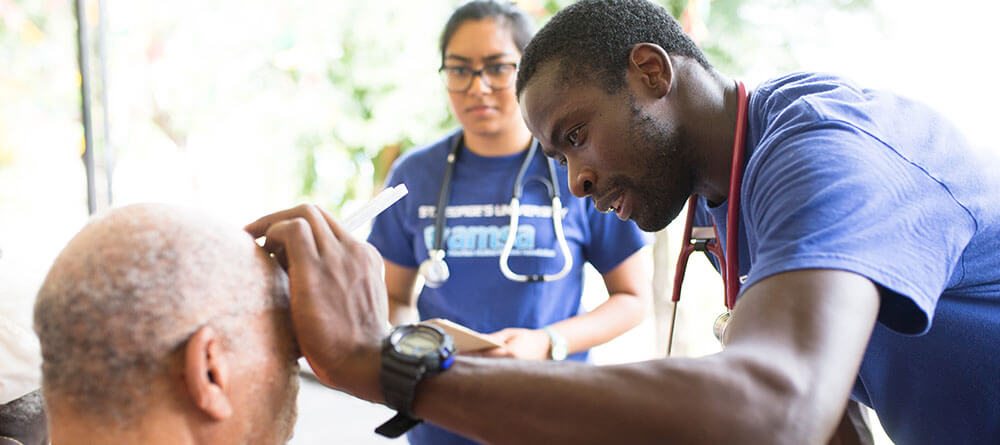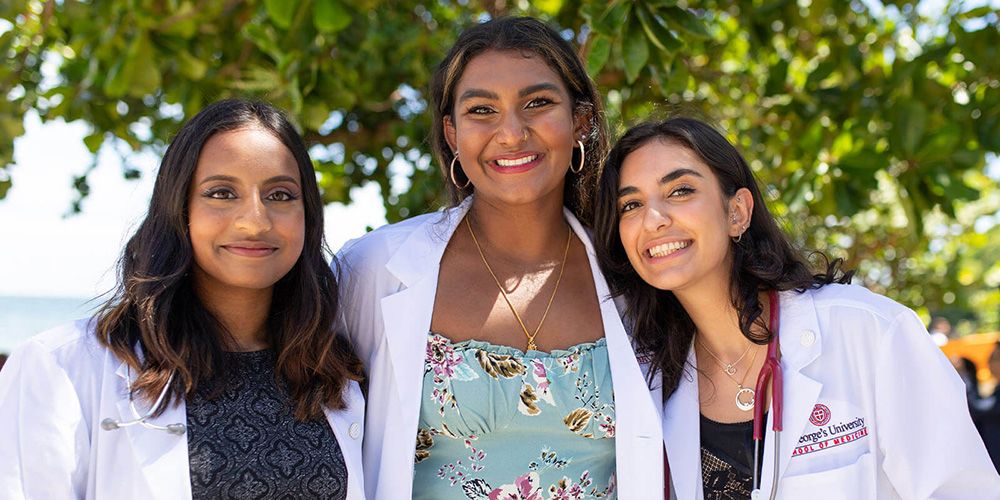It is now well understood that a lack of diversity in healthcare practitioners limits the capabilities of medical care. While cultural competence is undoubtedly important, representation also matters significantly.
When patients are unable to find providers who resemble them, their beliefs, their culture, or other facets of their life, they run the risk of being misunderstood or remaining unable to receive adequate treatment.
Issues related to diversity in the physician workforce and maldistribution of healthcare providers stem from the same place: the foundational training that occurs in medical school. If diversity, equity, and inclusion (DEI) are not addressed at the institutional level among medical school programs, the barriers that exist for underrepresented populations will remain insurmountable.
Join us as we outline the importance of DEI in healthcare and medical education.
What we mean when we talk about diversity in medical education
Data surrounding DEI in healthcare is unsurprising to most—the medical field is primarily made up of white males, with a much smaller contingent consisting of female physicians and those belonging to other ethnic groups. This poses problems when it comes to the healthcare disparities experienced by underrepresented populations.
“In general, you want your healthcare workforce to resemble the population they serve,” explains Dr. G. Richard Olds, president of St. Georges University (SGU). “It’s also helpful, since medicine is a mentoring profession, to have diversity among medical school faculty.”
The importance of DEI in healthcare
Just as DEI matters in the physician–patient dynamic, it’s equally important within the faculty–student dynamic. From representation to accessibility, consider the following reasons diversity in academic medicine is critical.
Representation
While diversity among MD applicants and matriculants continues to grow, the Association of American Medical Colleges (AAMC) notes that medical school faculty at US institutions is predominantly white and male. There remains a persistent underrepresentation of certain racial and ethnic minority groups and women in med school faculty positions.
The overall proportion of full-time women faculty has risen steadily over the last decade. However, data suggests they experience far fewer opportunities for advancement than their male peers. Women still only make up 18 percent of all medical school department chairs.
It’s also true that more than 60 percent of medical school faculty in the United States are white, according to data collected by the AAMC in 2021. Meanwhile, 3.8 percent are Black, 3.5 percent are of Hispanic, Latino, or Spanish origin, and just .14% identify as American Indian or Alaska Native.
Zooming in even further, the same data set revealed that white faculty members account for more than 70 percent of all professor positions, as opposed to instructor, assistant professor, and associate professor roles.
Paving a path toward DEI in healthcare starts by sowing seeds of representation in the med school programs that train our physician workforce. An increase in diversity among med school faculty and equal opportunities for advancement for minority populations in academic medicine are crucial ingredients for improvement.
Accessibility
From a patient perspective, spatial access to healthcare is one aspect of structural prejudice many fail to consider. We know that populations residing in rural areas have limited access to healthcare services. This in itself poses a major issue for public health.
But it’s also been found that rural areas with high Black or American Indian/Alaska Native representation are disproportionately impacted. Such locations are found to be significantly farther from medical resources than rural areas with high white representation.
This relates to DEI in academic medicine in a number of ways. Dr. Olds notes that physicians are statistically most likely to practice in the area they’re from or the location at which they completed residency.
“Students from rural areas simply don’t get into medical schools at a rate proportionate to people who live there,” he says, explaining that less than five percent of US medical students come from rural areas, while 15 percent of Americans live in those locations.
“One of the less talked about aspects of the current doctor shortage is the fact that more than three-quarters of US medical students came from families in the top two quintiles of the nation’s economic status,” Dr. Olds continues. “We are largely training the sons and daughters of wealthy Americans.”
This is why we need MD programs that can pave pathways of support for students who may not possess the resources needed to enable entry into a traditional US medical school.
“For years, foreign-trained doctors have made up 25 percent of the physician workforce. Because US medical school grads are not practicing in rural areas in large numbers, international medical graduates have filled that gap,” Dr. Olds says. While some of these are foreign doctors, Dr. Olds adds that many are US citizens who attend international medical schools such and St. George’s University.
International medical schools have been critical in helping address the primary care shortage. At SGU, which is located on the island of Grenada, students gain cross-cultural experience along with access to resources they need to be successful, including academic guidance and financial support.

Find a medical school that prioritizes DEI
If you have hopes for a holistic med school experience that will prepare you to be a culturally competent physician, it’s vital to seek out an institution that prioritizes diversity in medical education. From inclusion among students to diversity within department faculty, equal opportunity is a critical component of a thriving healthcare education system.
While you may not have previously considered attending medical school overseas, it’s possible you’ll find exactly what you’re looking for in one of these international programs. The immersive cultural experiences that schools like SGU offer can benefit your career trajectory in a number of ways.
Learn more in our article “6 Little Known Perks of Attending an International Medical School.”
Are you considering St. George’s University Medical School? If you’d like to know more, you can reach out to an SGU graduate They’re happy to tell you what their experiences were like.
If you feel like SGU could be the right medical school for you, take the next step. Continue your research by visiting our request information page.


